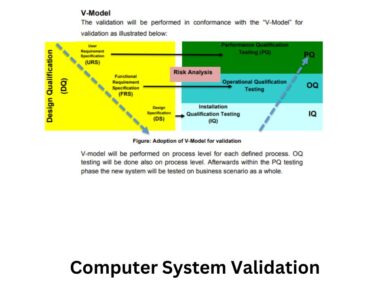Best Practices for Data Privacy: Data privacy is a critical issue in today’s digital world. The amount of personal data that is collected and stored by companies is staggering, and the potential for this data to be misused or stolen has never been greater.
Also Read
In recent years, there have been numerous high-profile data breaches and scandals, which have highlighted the importance of protecting personal information. As a result, data privacy has become a top priority for companies and individuals alike.

To ensure the protection of personal data, there are several best practices that should be followed. These include consulting with legal counsel and business leaders to determine the requirements for data privacy regulations. It is important to draft a policy based on the type of record and source of information.
Automating data destruction and enforcing retention timelines is also a best practice. Additionally, anonymizing and aggregating intent data can protect individual identities while still allowing insights to be derived from the data.
Overall, data privacy is a complex and rapidly evolving field. It is essential for companies to stay up-to-date with the latest best practices and regulations to ensure the protection of personal data.
By following these best practices, companies can help mitigate the risk of data breaches and protect the privacy of their customers.
Understanding Data Privacy
Data privacy refers to the protection of personal data from unauthorized access, use, or disclosure. In today’s digital age, data privacy has become a top concern for individuals and organizations alike.
With the increasing amount of data being generated and stored, it is critical to implement best practices to ensure data privacy.
One of the first steps in understanding data privacy is to identify what constitutes personal data. Personal data includes any information that can be used to identify an individual, such as name, address, email address, phone number, social security number, or financial information.
It can also include other data such as IP address, location data, and online behavior.
Once personal data is identified, it is important to establish policies and procedures to protect it. This can include implementing access controls, such as requiring passwords or two-factor authentication, encrypting data, and limiting access to only those who need it.
Organizations should also establish procedures for data retention and disposal, to ensure that personal data is not kept longer than necessary.
Another important aspect of data privacy is transparency. Individuals have the right to know what personal data is being collected about them, how it is being used, and who it is being shared with.
Organizations should provide clear and concise privacy notices that explain these details and obtain explicit consent from individuals before collecting or using their personal data.
Overall, understanding data privacy is critical for both individuals and organizations. By implementing best practices and being transparent about data collection and use, organizations can build trust with their customers and protect personal data from unauthorized access or disclosure.
Importance of Data Privacy

Data privacy is crucial for individuals, organizations, and governments. It is the practice of safeguarding personal and sensitive information from unauthorized access, use, disclosure, or destruction.
Data breaches can have severe consequences, including financial loss, reputational damage, legal liabilities, and identity theft. Therefore, it is essential to implement best practices for data privacy.
One of the main reasons why data privacy is important is to protect personal information. Personal data includes names, addresses, social security numbers, credit card numbers, medical records, and other sensitive information.
If this data falls into the wrong hands, it can be used for fraudulent activities, such as identity theft, phishing, and spamming. Moreover, personal data can be used for targeted advertising, profiling, and manipulation, which can compromise individuals’ privacy and autonomy.
Another reason why data privacy is important is to comply with legal and ethical standards. Many countries have enacted data protection laws, such as the General Data Protection Regulation (GDPR) in Europe and the California Consumer Privacy Act (CCPA) in the United States.
These laws require organizations to obtain consent, provide transparency, and implement security measures to protect personal data. Failure to comply with these laws can result in fines, legal actions, and reputational damage.
Furthermore, data privacy is essential for business continuity and competitiveness. Organizations that implement best practices for data privacy can build trust, loyalty, and reputation with their customers, partners, and stakeholders.
They can also reduce the risk of data breaches, which can result in financial losses, operational disruptions, and legal liabilities. Therefore, data privacy should be an integral part of an organization’s risk management and governance framework.
In summary, data privacy is critical for protecting personal information, complying with legal and ethical standards, and ensuring business continuity and competitiveness.
Organizations that implement best practices for data privacy can mitigate risks, build trust, and enhance their reputation.
Data Privacy Laws and Regulations

Data privacy laws and regulations are important for protecting individuals’ personal information. Companies that collect, store, and use personal data must comply with these laws and regulations, or they risk facing penalties and legal action.
Two of the most prominent data privacy laws are the General Data Protection Regulation (GDPR) and the California Consumer Privacy Act (CCPA).
GDPR
The GDPR is a regulation implemented by the European Union (EU) in 2018. It applies to all companies that process personal data of individuals in the EU, regardless of where the company is located.
The GDPR aims to give individuals greater control over their personal data and requires companies to obtain explicit consent for data processing activities.
Under the GDPR, individuals have the right to access their personal data, request that their data be deleted, and object to the processing of their data. Companies must also notify individuals of data breaches within 72 hours of becoming aware of the breach.
To comply with the GDPR, companies must implement appropriate technical and organizational measures to protect personal data, such as encryption, access controls, and regular security assessments.
They must also appoint a Data Protection Officer (DPO) to oversee data protection activities and ensure compliance with the GDPR.
CCPA
The CCPA is a law implemented by California in 2020. It applies to companies that do business in California and collect personal information from California residents.
The CCPA aims to give individuals greater control over their personal data and requires companies to provide transparency about their data collection and processing activities.
Under the CCPA, individuals have the right to access their personal data, request that their data be deleted, and opt-out of the sale of their data. Companies must also provide a clear and conspicuous link on their website for individuals to opt-out of the sale of their data.
To comply with the CCPA, companies must implement appropriate technical and organizational measures to protect personal data, such as encryption, access controls, and regular security assessments.
They must also provide clear and concise privacy policies that inform individuals about their data collection and processing activities.
Best Practices for Data Privacy
When it comes to data privacy, there are several best practices that organizations should follow to ensure the protection of sensitive information. This section will discuss some of the most important practices that organizations should consider implementing to protect their data.
Data Minimization
One of the most important practices for data privacy is data minimization. This means that organizations should only collect and store the minimum amount of data necessary to achieve their business goals.
By limiting the amount of data they collect, organizations can reduce the risk of a data breach or unauthorized access to sensitive information.
Organizations should also regularly review the data they collect and delete any data that is no longer necessary. This can help reduce the amount of data that needs to be protected and minimize the risk of a data breach.
Encryption
Encryption is another important practice for data privacy. Organizations should encrypt all sensitive data both in transit and at rest. This means that data should be encrypted when it is being transmitted over a network and when it is stored on a server or other storage device.
Encryption helps protect data from unauthorized access, as even if an attacker gains access to the data, they will not be able to read it without the decryption key. Organizations should use strong encryption algorithms and ensure that keys are properly managed and protected.
Access Control
Access control is another important practice for data privacy. Organizations should implement strict access controls to ensure that only authorized individuals have access to sensitive data.
This includes implementing strong authentication mechanisms, such as two-factor authentication, and limiting access to sensitive data on a need-to-know basis.
Organizations should also regularly review access controls to ensure that they are still appropriate and effective. This can help reduce the risk of unauthorized access to sensitive data.
Regular Audits
Regular audits are an important practice for data privacy. Organizations should regularly review their data privacy policies and procedures to ensure that they are up-to-date and effective.
This can help identify any weaknesses in the organization’s data privacy practices and allow them to take corrective action before a data breach occurs.
Organizations should also conduct regular security audits to identify any vulnerabilities in their systems and networks. This can help reduce the risk of a data breach and ensure that sensitive data is properly protected.
In conclusion, implementing best practices for data privacy is critical for organizations to protect their sensitive data. By following these practices, organizations can reduce the risk of a data breach and ensure that their data is properly protected.
Implementing a Data Privacy Policy
Implementing a data privacy policy is a crucial step in protecting sensitive information. A data privacy policy outlines the rules and procedures that an organization follows to ensure the confidentiality, integrity, and availability of data.
It helps to ensure that personal information is collected, processed, and stored in compliance with relevant laws and regulations.
To implement a data privacy policy, an organization should follow these best practices:
Conduct a Data Audit
The first step in implementing a data privacy policy is to conduct a data audit. This involves identifying all the data that the organization collects, processes, and stores.
It is essential to know what data is being collected, where it is stored, who has access to it, and how it is being used. This information is critical in determining the appropriate security measures to protect the data.
Define Data Privacy Roles and Responsibilities
To ensure that data privacy is a priority in the organization, it is essential to define data privacy roles and responsibilities. This involves identifying individuals responsible for data privacy, their roles, and their responsibilities.
These individuals should be trained on data privacy best practices and should be responsible for ensuring that the organization complies with relevant laws and regulations.
Develop Data Privacy Policies and Procedures
Developing data privacy policies and procedures is crucial in ensuring that personal information is collected, processed, and stored in compliance with relevant laws and regulations.
The policies and procedures should include guidelines for data collection, storage, access, use, and disposal. They should also outline the security measures that the organization will implement to protect the data.
Communicate Data Privacy Policies and Procedures
Communicating data privacy policies and procedures to all employees is crucial in ensuring that everyone in the organization is aware of the policies and procedures.
This includes providing training to employees on data privacy best practices and ensuring that they understand their roles and responsibilities.
Monitor and Review Data Privacy Policies and Procedures
Monitoring and reviewing data privacy policies and procedures is essential to ensuring that they are effective and up-to-date. It is essential to review the policies and procedures regularly to ensure that they are still relevant and to identify any gaps or weaknesses. This will help the organization continually improve its data privacy practices.
Implementing a data privacy policy is crucial in protecting sensitive information. By following these best practices, an organization can ensure that personal information is collected, processed, and stored in compliance with relevant laws and regulations.
Training and Awareness
Training and awareness are crucial components of any effective data privacy program. Organizations must ensure that their employees are aware of the risks associated with data breaches and understand their role in protecting sensitive information.
One of the best practices for data privacy training is to customize the content to reflect the organization’s data privacy policy and procedures. This means that training should comply with applicable regulations and standards, identify and address potential risks and vulnerabilities, and provide practical guidance on how to protect sensitive data.
Another best practice is to deliver training in a way that is engaging and interactive. This can include using real-life scenarios to illustrate the consequences of data breaches, providing hands-on training on how to identify and report potential security incidents, and using gamification techniques to make training more fun and engaging.
Organizations should also ensure that their employees receive regular refresher training to keep their skills and knowledge up-to-date. This can include providing ongoing training on new threats and vulnerabilities, as well as updates to data privacy laws and regulations.
Finally, organizations should consider implementing a privacy awareness campaign to reinforce the importance of data privacy among their employees. This can include posters, emails, and other communications that remind employees of the importance of protecting sensitive information and provide tips and best practices for doing so.
Overall, training and awareness are critical components of any effective data privacy program. By customizing training content, delivering it in an engaging and interactive way, providing regular refresher training, and implementing a privacy awareness campaign, organizations can help ensure that their employees are equipped to protect sensitive information and prevent data breaches.
Challenges in Data Privacy
Data privacy is a critical concern for businesses and individuals alike. With the increasing amount of data that is collected and processed every day, it is becoming more challenging to protect personal information from unauthorized access, use, and disclosure. Here are some of the most common challenges in data privacy:
Compliance
Compliance is a critical factor driving interest in, and adoption of, data privacy solutions. However, compliance is not enough to ensure data privacy.
There are many different laws and regulations that govern data privacy, and they can vary widely from one jurisdiction to another. Businesses must ensure that they are complying with all applicable laws and regulations, which can be a significant challenge.
Changing Technology
Technology is constantly evolving, and new technologies are emerging all the time. This can make it challenging to keep up with the latest developments and ensure that data privacy is maintained. For example, the proliferation of connected devices has created new challenges for data privacy.
Businesses must ensure that they are taking appropriate measures to protect data privacy in the face of changing technology.
Lack of Awareness
Many people are not aware of the risks associated with data privacy, which can make it challenging to ensure that personal information is protected.
For example, employees may not understand the importance of protecting sensitive data, or they may not be aware of the risks associated with sharing personal information on social media. Businesses must ensure that they are educating their employees and customers about the importance of data privacy.
Cybersecurity Threats
Cybersecurity threats are a significant challenge to data privacy. Hackers and cybercriminals are constantly looking for new ways to access personal information, and they are becoming increasingly sophisticated in their methods.
Businesses must ensure that they are taking appropriate measures to protect against cybersecurity threats, such as using strong passwords, encrypting data, and implementing multi-factor authentication.
Lack of Resources
Data privacy can be expensive, and many businesses may not have the resources to implement robust data privacy solutions. For example, small businesses may not have the budget to hire a dedicated data privacy officer or invest in expensive cybersecurity technologies.
Businesses must ensure that they are taking appropriate measures to protect data privacy, even if they do not have unlimited resources.
In conclusion, data privacy is a complex and challenging issue that requires careful attention and ongoing effort. By understanding the challenges associated with data privacy, businesses can take appropriate measures to protect personal information and ensure that data privacy is maintained.
Future of Data Privacy
As technology continues to evolve, so do the challenges and opportunities for data privacy. The Future of Privacy Forum provides a central repository for privacy-related guidance documents, reports, codes of conduct, and other resources that can help navigate complex issues and implement initiatives in privacy-protective ways.
One of the key trends identified by Gartner is the increasing importance of privacy in the enterprise. They predict that large organizations’ average annual budget for privacy will exceed $2.5 million by 2024.
This investment is necessary to address the growing complexity of privacy regulations and the increasing expectations of consumers.
Another trend is the rise of personal data as an asset owned by individuals and held in trust by organizations. Instead of serving as a resource that can be freely harvested, countries in every region of the world have begun to treat personal data as an asset that must be protected and managed responsibly.
To address these trends, organizations must implement best practices for data privacy. This includes appointing a data privacy officer who is responsible for ensuring compliance with privacy regulations and protecting personal data.
It also involves adopting a risk-based approach to privacy that prioritizes the protection of sensitive data and the mitigation of potential harm to individuals.
In addition, organizations must be transparent about their data collection and use practices, providing clear and concise notices to individuals about what data is being collected, how it is being used, and who it is being shared with.
They should also implement technical and organizational measures to protect personal data, such as encryption and access controls, and regularly assess and update their privacy policies and practices to ensure they remain effective and compliant with evolving regulations.
Overall, the future of data privacy requires a proactive and collaborative approach that prioritizes the protection of personal data while enabling innovation and growth in the digital economy.












